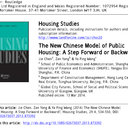Pharmacological blockade of cholesterol trafficking by cepharanthine in endothelial cells suppresses angiogenesis and tumor growth.
الكلمات الدالة
نبذة مختصرة
Cholesterol is an important modulator of membrane protein function and signaling in endothelial cells, thus making it an emerging target for anti-angiogenic agents. In this study, we employed a phenotypic screen that detects intracellular cholesterol distribution in endothelial cells (HUVEC) and identified 13 existing drugs as cholesterol trafficking inhibitors. Cepharanthine, an approved drug for anti-inflammatory and cancer management use, was amongst the candidates, which was selected for in-depth mechanistic studies to link cholesterol trafficking and angiogenesis. Cepharanthine inhibited the endolysosomal trafficking of free-cholesterol and low-density lipoprotein in HUVEC by binding to Niemann-Pick disease, type C1 (NPC1) protein and increasing the lysosomal pH. The blockade of cholesterol trafficking led to a cholesterol-dependent dissociation of mTOR from the lysosomes and inhibition of its downstream signaling. Cepharanthine inhibited angiogenesis in HUVEC and in zebrafish in a cholesterol-dependent manner. Furthermore, cepharanthine suppressed tumor growth in vivo by inhibiting angiogenesis and it enhanced the antitumor activity of the standard chemotherapy cisplatin in lung and breast cancer xenografts in mice. Altogether, these results strongly support the idea that cholesterol trafficking is a viable drug target for anti-angiogenesis and that the inhibitors identified among existing drugs, such as cepharanthine, could be potential anti-angiogenic and antitumor agents.



